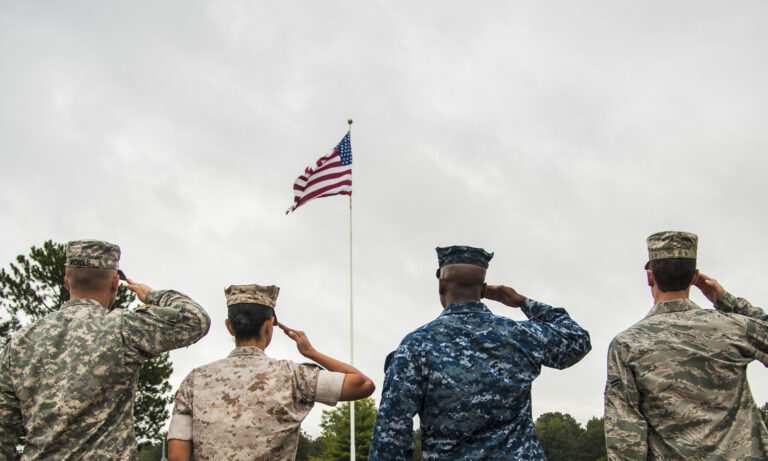
The number of people who have “a great deal of trust and confidence” in the U.S. military fell 14 points from 2018, from 70 percent to 56 percent according to a new poll by the Ronald Reagan Institute released Wednesday.
The Reagan Institute found the drop in military trust among a range of downward trends in public trust in recent years, but called the drop in military confidence “one of the more alarming downward trends,” of the poll results.
According to the institute, the survey was conducted from Feb. 4 to Feb. 14 by a bipartisan survey team at Beacon Research and Shaw & Company Research. The poll results showed the U.S. military’s decreased reputation in recent years.
The drop in confidence in the military has been a steady trend in recent years, with trust in the military from 70 percent in 2018, before falling seven points to 63 percent in 2019 and then falling another seven points to its current 56 percent in early 2021.
“To see this drop is quite a concern,” Roger Zakheim, the Reagan Institute’s Washington director told Military Times. “This is not just the events of the past 12 months. We’re seeing this trend now.”
Around six percent of respondents said they had no trust at all in the U.S. military.
Trust in the military has fallen among all surveyed demographic groups and political parties since 2018. In the roughly two-year span, Democrat trust in the military dropped from about 59 percent to about 48 percent. In that same time, Republican trust dropped from about 87 percent to about 70 percent. Political independent trust in the military fell from about 68 percent to 47 percent.
Zakheim said “There has been a rising concern over domestic division and political violence in the United States and for a number of years now.”
“We see in this poll that Americans are experiencing a sense of pessimism in almost every question [regarding] confidence or trust or reliance on allies,” he added. “The numbers are generally ticking down.”
Zakheim said the poll results could be reflective of political divisions during President Donald Trump’s last year in office, including concerns about National Guard deployments during protests and rioting throughout last summer.
The timing of the survey also comes amid reports several current and former military members were present at the Capitol on Jan. 6, when demonstrators entered the building, clashed with police and forced the building into lockdown.
President Joe Biden and Defense Secretary Lloyd Austin have also prioritized rooting out extremism in the military and increasing diversity in the military. In one of his first moves as president, Biden overturned a Trump-era ban on transgender troops serving in the military.
While public trust and confidence has fallen, the U.S. military still remains one of the most trusted public institutions. By comparison, 33 percent of respondents rated public health officials with a high degree of confidence, 21 percent of respondents rated public education with high confidence and 10 percent of respondents rated Congress with high confidence.
Public trust and confidence in law enforcement saw a similar drop to that seen by the military in the same timeframe, from 50 percent down to 39 percent.
Other questions meant to gauge public support for the military found some mixed views. 74 percent of those surveyed said they favor increasing military spending, a percentage that is relatively consistent with previous years. Only 11 percent of respondents said the military budget should be the highest U.S. priority, however, and health care and education ranked ahead of defense in terms of spending priorities for survey respondents.
About 61 percent of those surveyed said they would support maintaining U.S. troops overseas at their current levels, but around the same number said internal threats are of equal or greater concern for the military than external ones.
0 comments :
Post a Comment